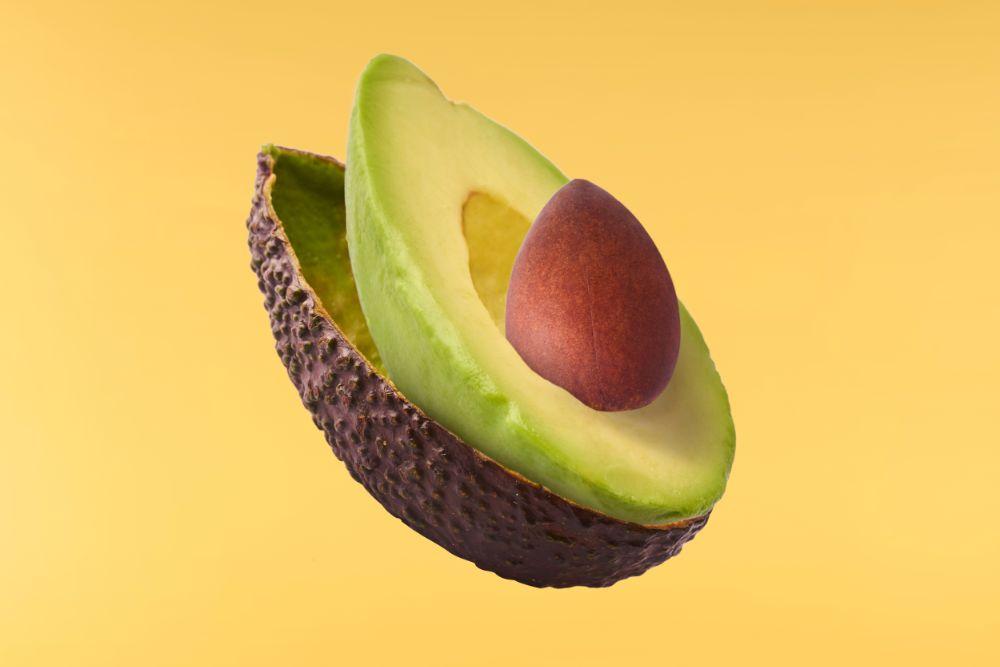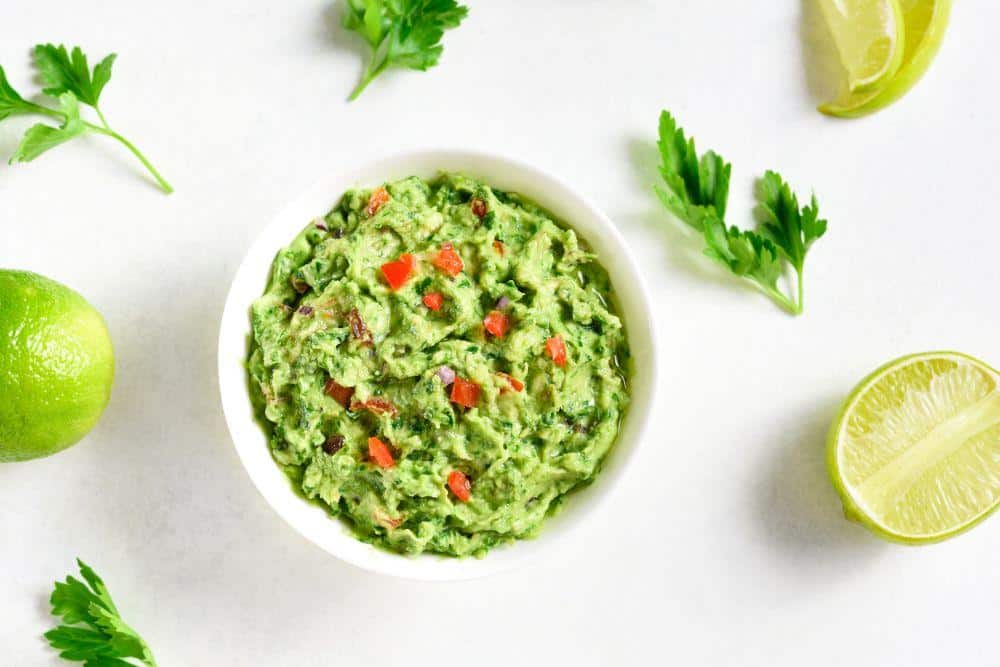Many people enjoy room-temperature avocado on toast or tacos, but can you heat up avocado? While this buttery green fruit (avocados are fruits) might not be the most common ingredient to add to a fiery grill, adding some warm avocado to any meal could make it much tastier.

A Delicious Ripe Avocado
Let's explore some of the most common questions people ask when wondering whether to heat an avocado. That way, you can safely enjoy avocados at any temperature!
Interesting Video About the Avocado Harvest in Mexico
An unripe avocado often has a firm texture and a slightly bitter flavor, but a ripe avocado is soft and buttery, with a grassy taste.
If you're hoping to take an underripe avocado and make it edible a bit more quickly, heat and sunlight can help. Placing an unripe avocado fruit on a sunny windowsill is one of the best ways to encourage ripening, as warm temperatures allow fruits to ripen more quickly.
But heat and light aren't the only methods to expedite the ripening process.
Like other fruits, avocados release ethylene gas. When trapped, this gas can speed up the ripening process. In this context, you can ripen one by placing it in a paper bag and sealing it shut for several hours (or a few days).
While you could use an oven to try and ripen an avocado more quickly, using the sunlight or bag method typically yields better results. While an oven's high heat can soften the inside of an avocado, it won't improve the bitter taste associated with unripe avocados.
You can microwave avocado to heat it quickly. And unlike animal proteins (like chicken), microwaving an avocado for a short period likely won't make it taste bad.
Still, it's crucial to prepare an avocado for the microwave before heating it, and you'll also want to avoid heating an avocado for too long in a microwave.
When microwaving avocado, removing the avocado seed (sometimes called an avocado pit) before placing the fruit onto a microwave-safe plate is essential. You'll need to halve the avocado to access the seed inside.
Microwaving avocado that is uncut and whole can be dangerous and messy, as the moisture inside the fruit has no means to escape while being microwaved, resulting in explosions and a filthy microwave interior.
While you can prick the skin of the avocado with a fork to help the steam escape, removing the hot avocado pit after microwaving can be dangerous, which is why it's often best to do so beforehand.
In summary, to enjoy near-instantly warm avocado, you'll want to:
After your avocado is pleasantly warm, you can scoop it out from the exterior skin with a spoon. Adding these spoonfuls to a small bowl of sour cream is an excellent technique to make homemade tacos taste even better.
Now you have the answer to the question “can you heat up avocado?” But what method will be most effective for warming up the fruit? Well, what's ideal for you depends on your preferences and current kitchen setup.
For example, if you have a small kitchen with few appliances, an oven or microwave might be preferred. However, if you have a backyard grill, you might want to try grilling instead.
Avocados have large pits and will do so even if you order from places like Chosen Foods or a meal plan company. That means you can use halved pit-free avocados as edible containers for various ingredients, including eggs, cheese, and vegetables. Baking these combinations in an oven is a delicious way to take advantage of the fruit’s unique shape.

Surprise - You Can Actually Heat Up Avocado in the Oven With Good Results
Most avocado-based dishes that require baking instruct home cooks to set their ovens to 450℉ (about 232℃). Still, temperatures vary depending on the other ingredients used in the recipe.
You can even heat room-temperature avocado in a toaster oven by plopping it onto some lightly toasted bread slices. This method is a fantastic option to make avocado toast.
To grill avocado, you'll need to halve the fruit, remove the pit, and place the halves onto the grill. Unless the avocado is overripe, it's best to grill with the skin facing upward.
This high-heat cooking method is unique, as it's one of the few ways to alter the flavor of an avocado without using spices.
Grilling avocado on a wood-fired or charcoal grill is an excellent way to imbue it with smoky flavors. In addition, you can use this cooked avocado to make a distinctly flavorful guacamole dip or an easy-to-prepare pico de gallo side dish.

You Can Even Heat Up Guacamole - Just Don’t Overdo It!
Guacamole is a popular type of dip that primarily consists of avocado. This dip is often served cold or at room temperature, and its ingredients (onions, tomatoes, cilantro) aren't cooked before they're mixed.
However, you can microwave guacamole or heat it up on a stovetop range to warm it up a bit.
Most guacamole will be thoroughly warm after only 30 seconds in the microwave, though heating times vary based on your settings and the amount of dip. Hot guac pairs well with many Mexican dishes, including reheated empanadas!
You can heat avocado oil to lightly fry ingredients or add healthy fats to meals that call for plant-based cooking oil. Additionally, refined avocado oil has a higher smoke point than olive oil, making it an excellent alternative.
Refined avocado oil has a smoke point of 520℉ (270℃). Compared to all other plant-based cooking oils (like peanut, coconut, and canola oil), avocado oil has the highest smoke point, making it less likely to burn during cooking.
Still, this isn't true of virgin avocado oil, which has a much lower smoke point of about 350℉ (about 177℃).
You can heat avocado oil in much the same way as other cooking oils. For example, add avocado oil to a frying pan to prepare fried eggs or a wok to make a stir-fried meal. You can also put avocado oil in a deep pan to deep fry ingredients like potatoes.
Naturally, it's crucial to follow specific safety guidelines when frying with any oil. Hot oil can burn skin and clothing and poses a fire risk when used on gas ranges.
You have the answer to the question “can you heat up avocado,” but what dishes work well with avocado oil? You can use it to make salad dressings, saute vegetables, or keep pasta from sticking together while boiling. Because avocado oil is relatively flavorful, it won't add unwanted flavors to your ingredients.
